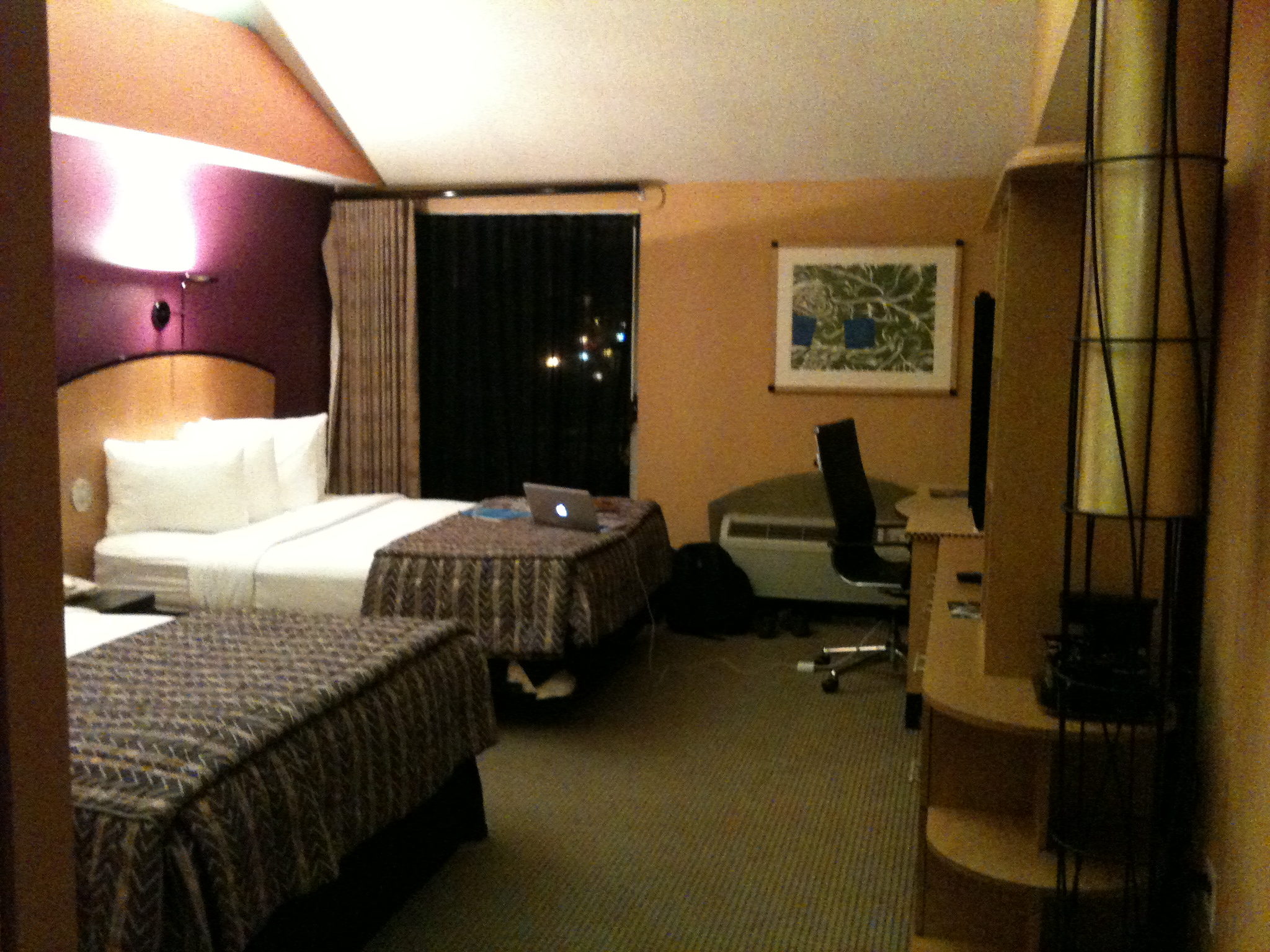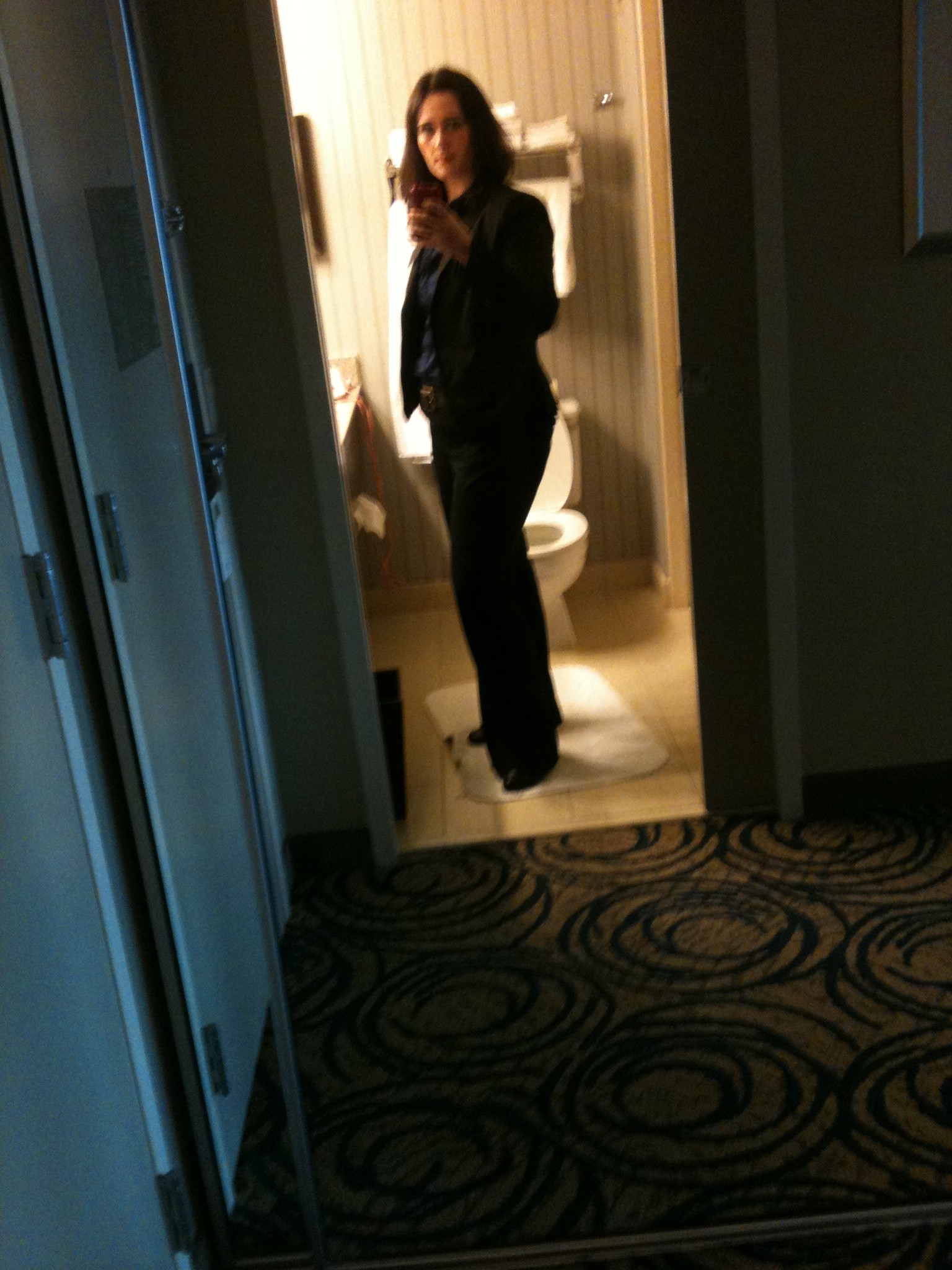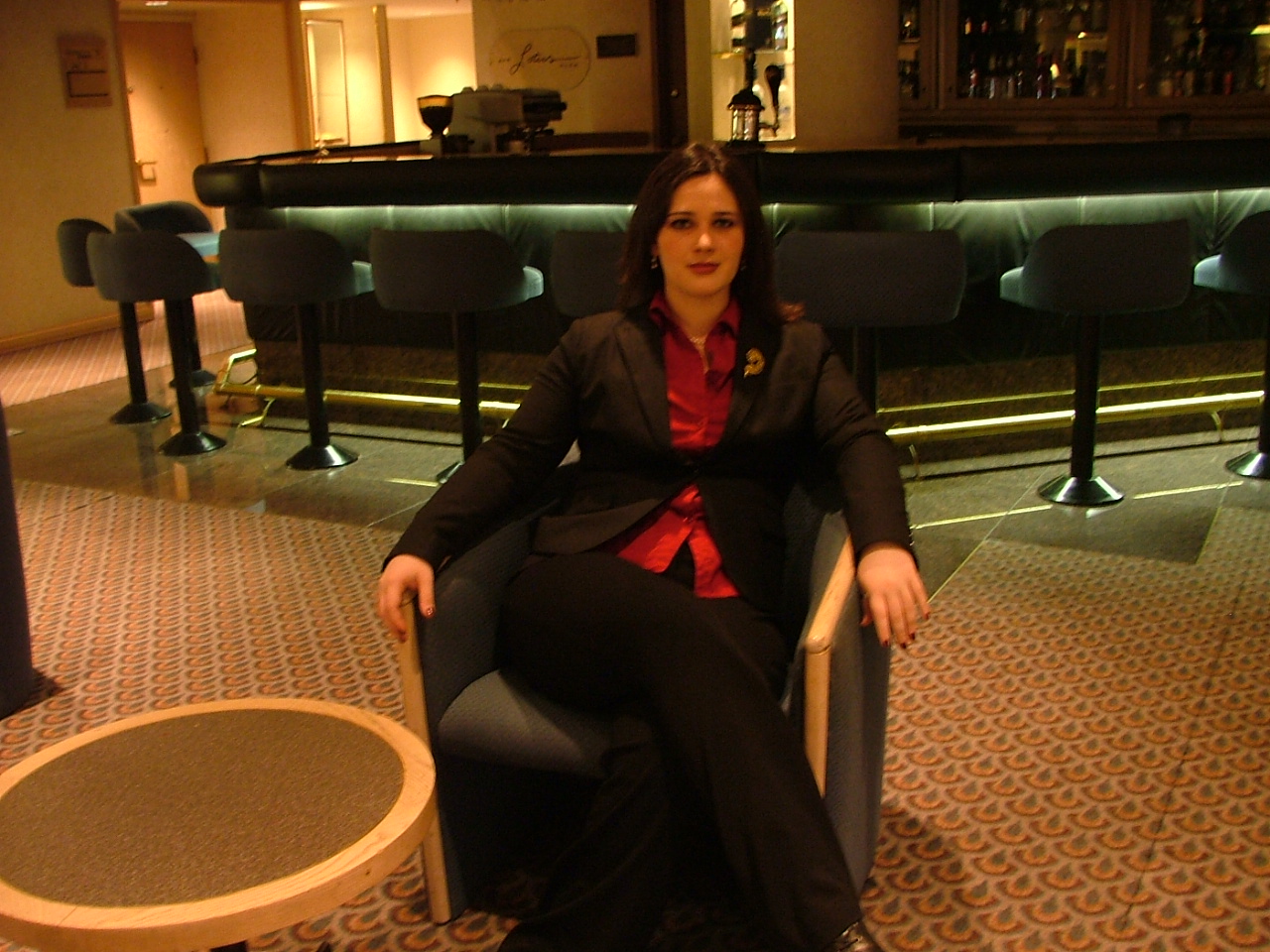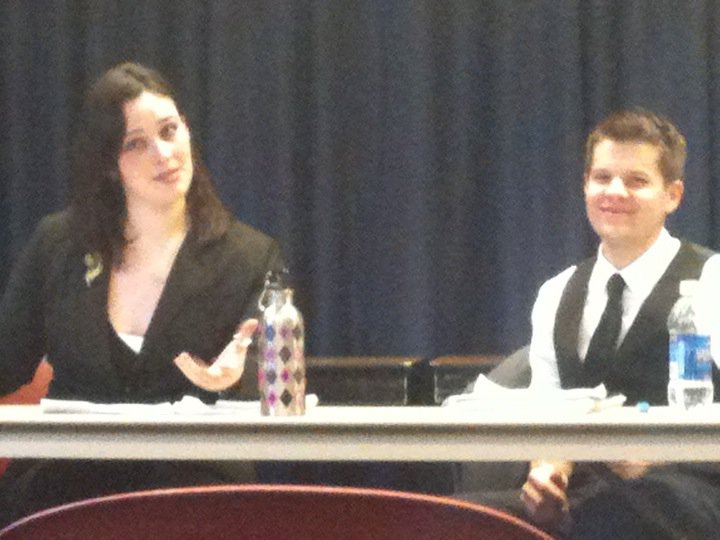So I had a great time at the Comparative Drama Conference this weekend. The ideas batted around were interesting, the company couldn’t be beat, and I managed to sneak off for a bit to visit the dolphins.
Over the course of the weekend, I also had a lot of time to do some thinking about my practices as a girl living in the digital era and how this relates to my job as an academic.
One of the highlights of the weekend was having the opportunity to live-tweet the keynote (a Q/A session with playwright Paula Vogel who, by the way, is the most charming,

Myself and my Tufts companions with keynote speaker Paula Vogel
intelligent, and wonderful lesbian playwright I’ve ever met) with a colleague of mine whom I had followed on twitter for a long time but never met before. Through the beauty of hash tags, we managed to find each other. This gave us the chance to discuss our experiences with the digital realm and how these experiences reverberate into our scholarship.
So there I was, buzzing with excitement about the twenty-first century and all the lovely things that it could offer us, when one of my Tufts compatriots mentioned that he felt that the practice of live tweeting was rude.
Now, it’s not that I haven’t given this notion some previous thought. It occurs to me every time I sit down to class and open my netbook for notes. There is some amount of trust implicit in the professor/student relationship that the students, all of whom are plugged in at this juncture to some degree, are paying attention, are taking notes, and are not spending the class period playing facebook games or checking their e-mail.
I have wondered at the boundaries of respect and net-etiquette for some time. There are clearly some things that are okay, and clearly some things that are not okay, but what ![]() about the gray areas? Live tweeting, after all, is just a form of note taking. It’s a public archival project with the end result being to disseminate information to individuals who can’t be present at the place and time of the tweet, but who may want to somehow be a part of what is happening in the room. What’s the difference between me typing a note in a word document and me typing a note on my twitter feed besides the public act that it entails?
about the gray areas? Live tweeting, after all, is just a form of note taking. It’s a public archival project with the end result being to disseminate information to individuals who can’t be present at the place and time of the tweet, but who may want to somehow be a part of what is happening in the room. What’s the difference between me typing a note in a word document and me typing a note on my twitter feed besides the public act that it entails?
I recognize that there are certain things which should not be tweeted (or facebooked, or blogged about…). The digital age has served to do many things and one of them is to peel back layers of privacy nearly to the point of transparency. The scary thing about this is it’s not just what one chooses to share about herself which creates her web presence, it’s also what other people share about her. If someone chooses to tweet a conversation which we had presumably in private, there’s little I can do about it besides request that the offending tweets be removed. And even then, by the time I notice that something may be wrong, there’s a good chance that a large contingency has already seen the offensive material.
So here are some lists of protocol which I follow for live-tweeting. Please note: this is a work in progress and far from a perfect system (yet). In the year to come, I will be working on an exciting project which will force me to constantly re-evaluate this criterion (more on my project as details firm up). For now, though, here’s some good common sense advice to ensure that you keep yourself out of trouble while staying connected in the digital age.
Always
*Cite your sources if you are quoting – use “@twitterID” if the individual is on twitter so that he may receive notification of your tweet. If the individual is not on twitter, use a hash tag for better archival practice.
*Be true to the spirit of your source. Since twitter only gives you 150 characters to express a sentiment, that sentiment can often get clipped into sound bytes. Do not misrepresent your source simply because you ran out of room.
*Be aware that your source also has a web presence and be respectful of that – don’t tweet something you would feel uncomfortable sharing to a roomful of strangers even if that something is about someone else.
It is Inappropriate to…
*Tweet direct quotes from unpublished material. Conferencing gives you a great inside look at what your colleagues are working on; don’t violate that trust by publishing their work before they get a chance to. Yes, tweeting on the internet is a form of publication.
*Tweet something said in confidence. This includes: something said behind a closed office door (without prior approval to share it), something remarked in passing which may or may not be appropriate outside of context, or something you read off a colleagues paper when asked for feedback about said piece. Despite the digital revolution, boundaries still exist. We need to be respectful of them lest the practice of tweeting be forever banished from serious conversation.
*Tweet while speaking one-on-one with someone at dinner, after a panel, or in the conference lounge. This is just a matter of courtesy. Eye contact is good for the soul.
*Tweet something if someone has specifically asked you not to. As we progress into the digital revolution, we will see more and more integration of technology into all parts of our work. We will also see people who aren’t entirely comfortable with this yet. If someone requests that his panel be tweet-blind, you have to respect that.
Try to…
*Ask for permission whenever possible. If you’re unsure, ask! Wouldn’t you rather  someone be flattered that you want to publicize her work than angry that you shared it without her knowledge?
someone be flattered that you want to publicize her work than angry that you shared it without her knowledge?
*Sit at the back of the room if you plan to live-tweet. People behind you may find your screen distracting, and the panelists may find it difficult to speak while looking at the top of your head.
That’s all the news for now. I’m diving into some pretty work-intense weeks in this final swathe of the semester, but that just means that there will be more exciting updates in the days to come. Now: more Strindberg. Blergh.










